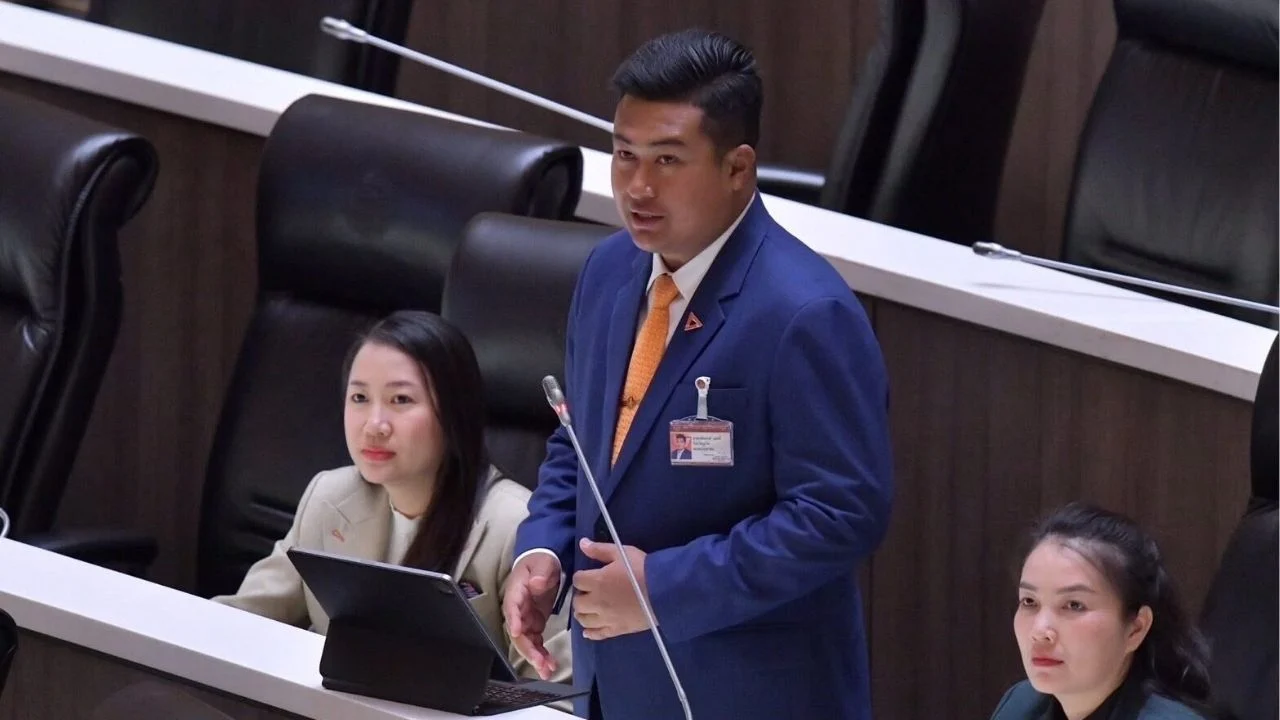PHUKET – A Member of Parliament representing Phuket has sparked debate after warning that the unregulated use of cannabis on beaches is discouraging high-spending tourists and damaging the island’s international reputation.
On July 25, Chalermpong Saengdee, an MP from the People’s Party, criticised both the current lack of cannabis regulation and the government’s visa-free travel policies. He claimed these issues are contributing to a decline in the quality of tourism in Phuket, one of Thailand’s most popular destinations.

“I want everyone to close their eyes and imagine a family walking along the beach, enjoying the sunset – and then suddenly, they’re hit by the smell of marijuana and can’t escape it,” Chalermpong said in a public statement. “This is the current situation in Phuket.”
While cannabis was decriminalised in Thailand in 2022, the law currently lacks comprehensive regulation regarding its use in public spaces. Although cannabis shops are legal, there are no nationwide zoning restrictions or usage limits similar to those applied to alcohol, such as designated hours of sale or age requirements. This legal grey area has led to concerns, especially in tourist-heavy areas.
Chalermpong argued that the absence of stricter rules is pushing away “quality tourists”—a term often used by Thai officials to describe visitors who stay longer and spend more, particularly families and high-end travellers. He called for cannabis regulation to mirror alcohol laws, with enforced limits on where and when it can be sold or consumed.
“We must consider whether attracting one group of tourists is worth losing another – along with billions of baht,” he said.
In addition to concerns over cannabis use, Chalermpong also criticised the government’s visa-free policy, particularly in relation to Chinese tourists. While the policy was expected to boost arrivals, he claimed the anticipated surge never materialised. Instead, he warned that lax immigration controls have led to an influx of so-called “grey tourists”—a Thai term referring to individuals who may enter the country legally but engage in illegal or semi-legal activities, such as unlicensed business operations or overstays.
“When we opened visa-free entry, we didn’t get what we expected,” Chalermpong stated. “Now, we’ve only got grey tourists coming in, and it’s a policy that’s doing more harm than good.”
He urged the government to use its remaining time in office to restore Phuket’s reputation as a world-class tourist destination. His recommendations include enforcing stricter cannabis regulations, tightening immigration checks, and refocusing tourism strategies to attract high-spending international visitors.
Phuket, long known for its luxury resorts, scenic beaches, and vibrant nightlife, is now facing challenges that could shape the future of its tourism industry.
“We cannot ignore what’s happening on our beaches, in our streets, and in our policies any longer,” Chalermpong concluded.



